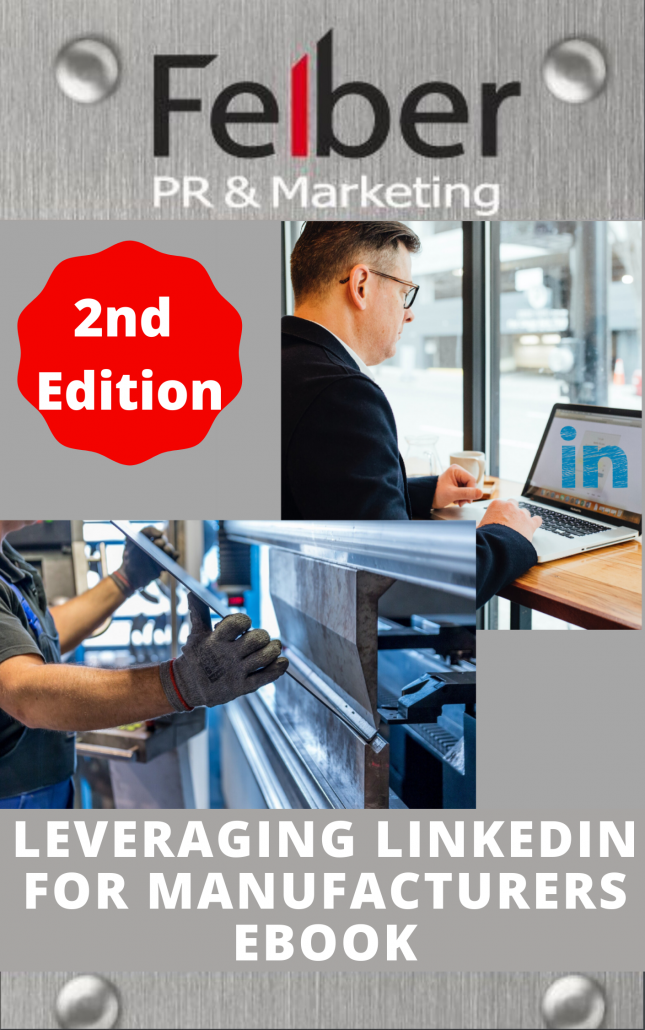5 Stellar Manufacturing Sales Qualifying Questions You Need to Use ASAP

Let’s face it, not every prospect is the right fit for your products or services. Utilizing qualifying questions in the sales process is key to helping you uncover if the prospect you are courting will result in new business. Are the questions you are using leading to a higher close rate?
Keep reading to learn 5 manufacturing sales qualifying questions we suggest using in your sales process.
1. What is the manufacturing challenge you are trying to fix?
Your manufacturing prospects are risk-averse, and they know that implementing a new product, or service can be a huge undertaking. If your prospect didn’t have a real problem or strong reason to make a switch, they wouldn’t. Do not assume you understand what they feel is their biggest pain. You need to ask questions and probe to uncover the real answer.
2. Have you tried another process/service to solve this issue in the past? If so, why do you think it didn’t work?
Oftentimes, your prospect has tried other solutions before coming to you. Maybe they tried to solve the issue in-house, which caused them a considerable headache. Perhaps they tried another solution with a competitor, only to have that solution fail.
It’s important for you to have a crystal-clear understanding of what your prospect has tried in the past and why (they think) it didn’t work for the application or their company. That way, you know if the solution your company can offer will be a better fit for your prospect. Another key reason to understand why something failed is so the solution you (and by extension your company) is not tainted by their previous vendor experience; past failures, internally or externally, should not be associated with your offering.
3. If you make no changes, what will happen?
If your prospect answers, ‘it won’t make that much of a difference’, they do not have a strong conviction that your product or service is the solution. At this point, manufacturing salespeople can make the determination if this prospect should be disqualified as a lead or if there is an opportunity to explain the risk ahead. If you cannot uncover enough pain, you very well might not have a prospect.
4. How are decisions typically made on your team, and is there anyone else who will be involved?
Asking your prospect to describe a similar purchasing decision will provide insight into their process, risk tolerance, and help uncover potential roadblocks. As a salesperson, there is nothing worse than when you think you are consulting with the final decision maker, only to find out there are more people that need to be brought into the decision. It is also important to understand who has budget authority on their team and the hierarchy of those participating.
5. Are you currently considering other services as your solution?
Many times, your prospect is considering multiple solutions. Maybe your prospect is considering you vs. your biggest competitor. Or, are they discussing completely different processes targeting the same result. For example, maybe your prospect is considering your company (a die caster) vs. a 3D printing firm to produce their parts. You never know where the prospect is in their buying process unless you ask. For all you know, your prospect may have an offer on the table from your competitor but are feeling price pressure from upper management and need to present other options. Carefully listen to their response so that you can better understand where they are coming from and how to best guide in their decision-making process.
We hope you found our list of qualifying questions valuable. Whatever questions you choose to use in your sales process, make sure you customize them to fit your company and speak to your prospects in a way that will resonate with them. Taking the extra time to craft a strong list of qualifying questions your entire sales team can use ensures that you are all using the same messaging and have a clear understanding of how to evaluate if a prospect is actually a good lead.


Leave a Reply
Want to join the discussion?Feel free to contribute!